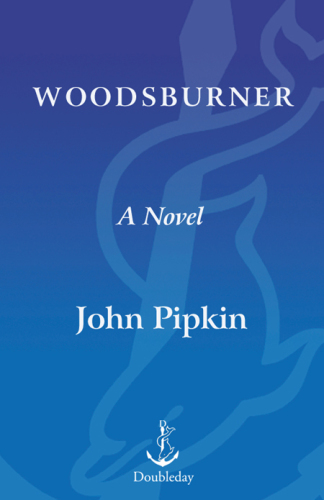
Woodsburner
A Novel
کتاب های مرتبط
- اطلاعات
- نقد و بررسی
- دیدگاه کاربران
نقد و بررسی

April 27, 2009
Most readers know Thoreau's Walden as a treatise on man's respect for nature, but Pipkin's debut novel adds something new to the equation. A fictionalized version of a true event, this book explores Thoreau's overwhelming guilt for a Concord forest fire he accidentally set a year before his Walden retreat. Pipkin jumps effortlessly among the perspectives of Henry David and several unconnected townsfolk brought together by the fire, taking the blaze itself as his central character: "not one enemy but many, thousands of individual flames, chewing through trees, taking possession of the woods as if this were their inheritance." Fire chews through his character's lives as well; as the flames grow too large to control, the townspeople must one by one face the absurdity of man's bulwarks against nature. Pipkin tosses off hints of Thoreau's writings ("man's inability to conceive of the world's limits," instructing a local bookseller to "come to this very spot and build your home from the blackened timbers"), but his novel succeeds beyond the confines of its literary pedigree, making it a thought-provoking page-turner in its own right, a successful balance of story and character study.

Starred review from April 15, 2009
An inglorious episode in the life of 19th-century author and environmental saint Henry David Thoreau is the subject of Pipkin's impressive debut novel.
In 1844, a year prior to his memorable tenure at Walden Pond, while hiking with a friend on the fringe of woods not far from bustling Concord, Mass., Thoreau impulsively lit a match in dry weather during a high wind, starting a fire that would consume 300 acres of valuable forest and farmland. An initial focus on Henry's guilt and panic unfolds into ongoing portrayals of the lives of three other men variously affected by the conflagration, as independently lived and as briefly linked to the life of Thoreau. Norwegian immigrant farmhand Oddmund Hus, still haunted by images of the fire ignited when the ship that had borne his family to America exploded in Boston Harbor, yearns for his dour employer's buxom Irish wife, and agonizes over whether the recent brush fire he tended had made him the inadvertent"woodsburner." Boston bookseller Eliot Calvert, painfully aware of compromises made to support his demanding family, assists volunteer firefighters manfully, but envisions the catastrophe in relation to the unwritten climax of his (hilariously jejune) stage play. And insanely jealous preacher Caleb Dowdy, long estranged from his more temperate clergyman father, seeks purification for his own sin (withholding the promise of salvation from an innocent man falsely accused of child molestation) in the cleansing power of the great fire. Pipkin tells their stories in a breathlessly exciting present tense, layering in substantial information about the credos and conflicts of the new England Transcendentalists, only occasionally lapsing into expository overkill. The author succeeds brilliantly in portraying a young country struggling to shape its idealistic energies into something concrete and enduring. The consequent successes and failures are movingly encapsulated in"Odd" Hus's emotional, climactic vision of destruction, rebirth and renewal.
A superb historical fiction as well as a complex and provocative novel of ideas—Pulitzer Prize material.
(COPYRIGHT (2009) KIRKUS REVIEWS/NIELSEN BUSINESS MEDIA, INC. ALL RIGHTS RESERVED.)

Starred review from April 15, 2009
This is a powerfully rendered debut about an infamous moment in American literary history: Henry David Thoreau accidentally starting a massive fire that burned 300 acres of woods near Concord, MA, in 1844. Significantly, this happened just a year before Thoreau removed himself from society, built his cabin, and began work on his masterpiece, "Walden". Pipkin does an excellent job of bringing the people and environs of historic Concord to life. There are three other major characters in the novelan orphaned Norwegian farmhand, a Puritan-style preacher, and a bookseller and aspiring playwrightand each ends up influencing Thoreau in some significant way as they fight the fire together. All are skillfully drawn. The novel ends just days after the fire, with the young Thoreau humiliated and the people of Concord outraged, and Pipkin suggests that responsibility for this fire is what drove Thoreau into the woods and into deep reflection about nature, self-reliance, and living. A fascinating fictional exploration of a seminal American event.Patrick Sullivan, Manchester Community Coll., CT
Copyright 2009 Library Journal, LLC Used with permission.

























دیدگاه کاربران